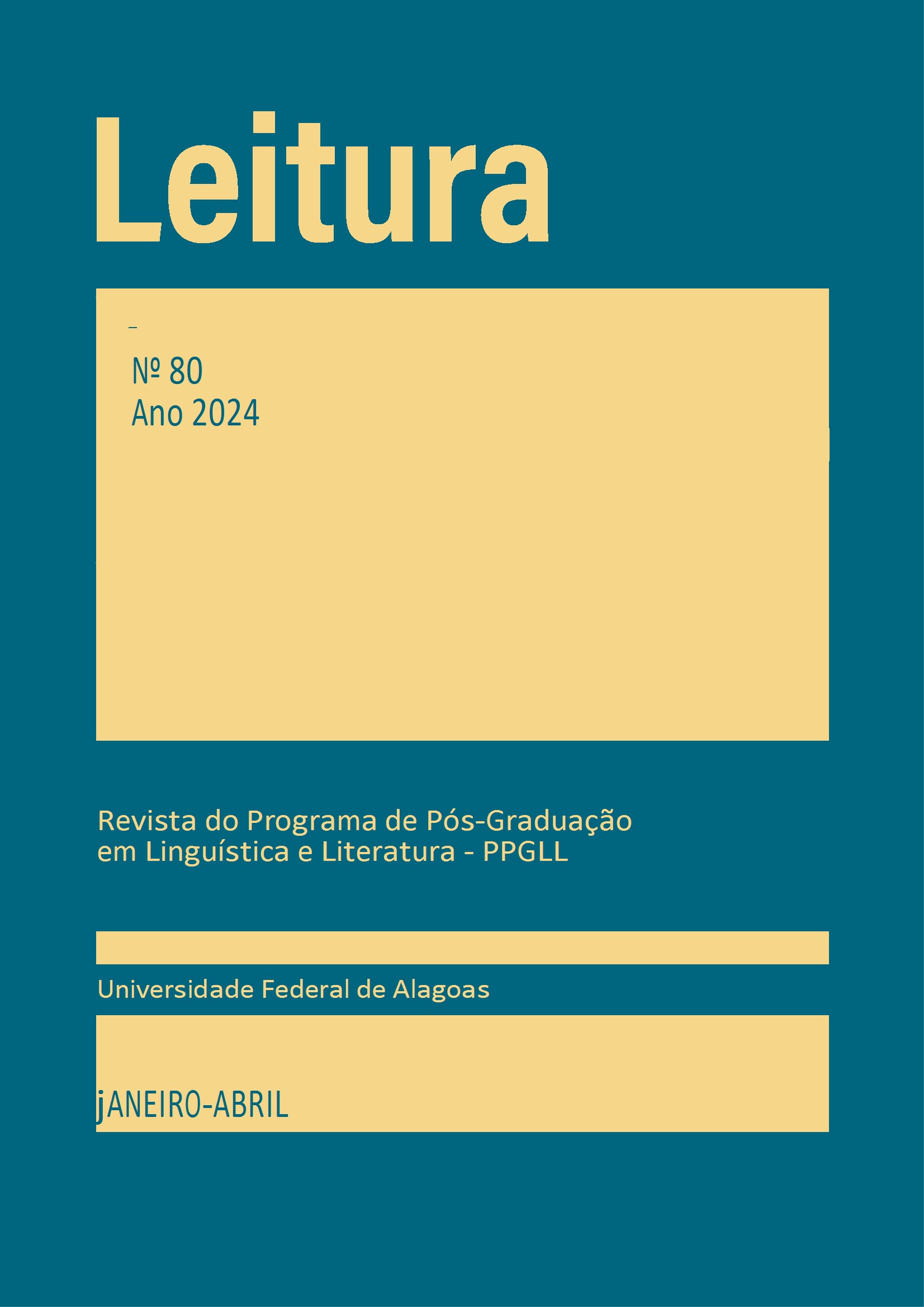Realidade, experiência e discurso: repensando a noção sociossemiótica de contexto à luz de uma perspectiva vygotskiana
DOI:
https://doi.org/10.28998/2317-9945.202480.125-139Keywords:
Systemic Functional Linguistics, Context, Vygotsky, Experience, PerezhivanieAbstract
The main objective of this paper is to discuss the notion of context advocated by Systemic Functional Linguistics and, due to its problems, to propose a sketch of another interpretation of this phenomenon: the trinitary model of context. This conception is founded in a dialogue between Vygotsky’s reflection about experience as the main axis of our psychological life and the socio-semiotic linguistic doctrine regarding the context factors (HALLIDAY, 1994). Aiming this goal, after the general presentation of the theoretical foundation of Systemic Functional Linguistics, the definition of context spoused by this school of thought will be discussed. Afterwards, we will expose the main problems and contradictions of the objectivist and supervenient view of context endorsed by Systemic Functional Linguistics. Finally, based on Vygotsky’s reflection about the notion of experience (perezhivanie) (VYGOTSKY, 1994), the trinitary model of context, seen as a more coherent way of understanding the extralinguistic elements of language, will be promoted.
Downloads
References
ARMENGAUD, F. A Pragmática. Trad.: Marcos Marcionilo. São Paulo: Parábola Editorial, 2006.
BARTLETT, T. Context in Systemic Functional Linguistics. In: BARTLETT, T.; O’GRADY, G. (eds.). The Routledge Handbook of Systemic Functional Linguistics. London: Routledge, 2017. p. 375–390.
FIRTH, J. R. A Synopsis of Linguistic Theory: 1950—1955. Oxford: Studies in Linguistic Analysis, 1957.
GARFINKEL, H. Studies in ethnomethodology. London: Routledge Press, 2018.
HALLIDY, M. A. K. An Introduction to Functional Grammar (2 ed.). London: Arnold, 1994.
HALLIDAY, M. A. K.; MATTHIESSEN, C. M. I. An Introduction to Functional Grammar. London: Routledge, 2004.
HALLIDAY, M.A.K.; HASAN, R. Cohesion in English. London: Longman, 1976.
HAO, J. Analysing Scientific Discourse from a Systemic Functional Linguistic Perspective: A Framework for Exploring Knowledge Building in Biology. Abingdon: Routledge, 2020.
HASAN, R. Choice, system, realisation: describing language as meaning potential. In: FONTAINE, L.; BARTLETT, T.; O’GRADY, G. (eds) Systemic Functional Linguistics: Exploring Choice. Cambridge: Cambridge University Press, 2013. pp. 269– 99.
JAKOBSON, R. Linguistics and Poetics, In SEBEOK, T. (ed.). Style in Language. Cambridge, MA: MIT Press, 1960.
MALINOWSKI, B. The Problem of Meaning in Primitive Languages: Supplement 1. In: OGDEN, C. K.; RICHARDS, I. A. (eds.). The Meaning of Meaning. London: Routledge & Kegan Paul, 1972[1923]. p. 296-336.
MARTIN, J. Modelling Context: Matter as Meaning. In: GOUVEIA, C. A. M.; ALEXANDRE, M. F. (Eds.). Languages, Metalanguages, Modalities, Cultures: Functional and Socio-discoursive Perspectives. Lisbon: BonD: Books on Demand, 2013. p. 19-64.
MARTIN, J. R.; MATTHIESSEN, C.M.I.M. Systemic typology and topology. In CHRISTIE, F. (Ed.) Literacy in social processes: Papers from the inaugural Australian Systemic Functional Linguistics Conference (held at Deakin University, Victoria, January 1990). Darwin: Centre for Studies of Language in Education, 1991.
MARTIN, J. R.; WHITE, P. The language of evaluation. Great Britain: Pelgrave/ Macmillan, 2005.
VYGOTSK, L. S. The problem of the environment (T. Prout, trad.). In VAN DER VEER, R.; VALSINER, J. (Ed.). The Vygotsky reader. Oxford, UK: Blackwell, 1994[1934]. pp. 338-354.
ZUBIRI, X. Inteligencia sentiente: Inteligencia y realidad. 5. ed. Madrid: Alianza Editorial, 1998.










